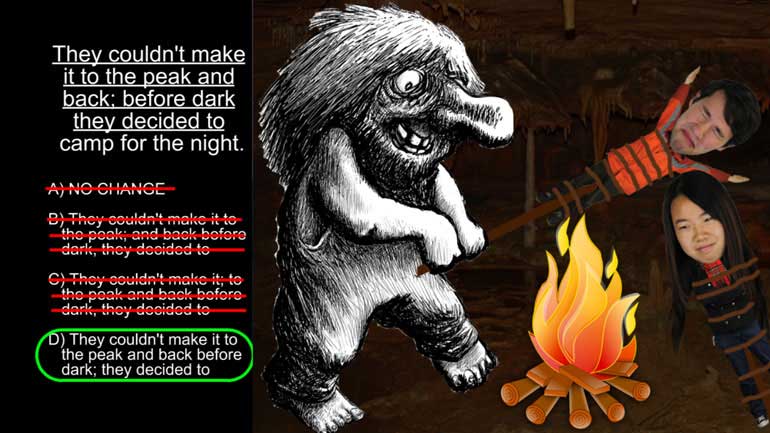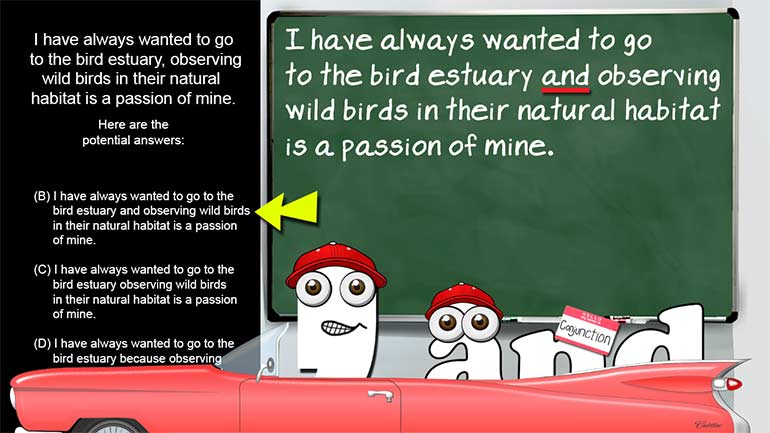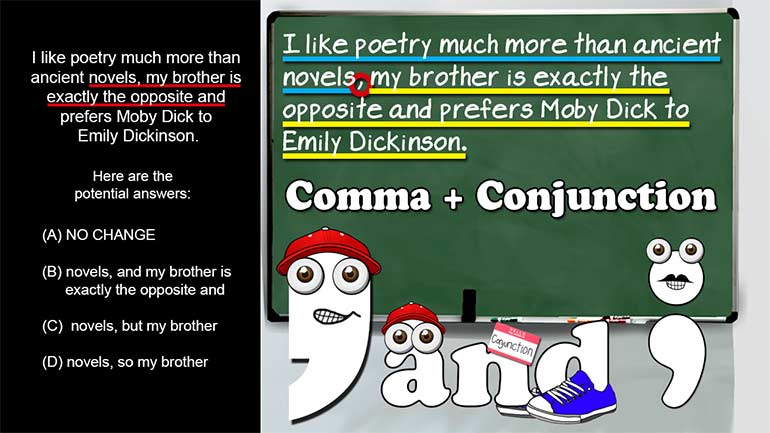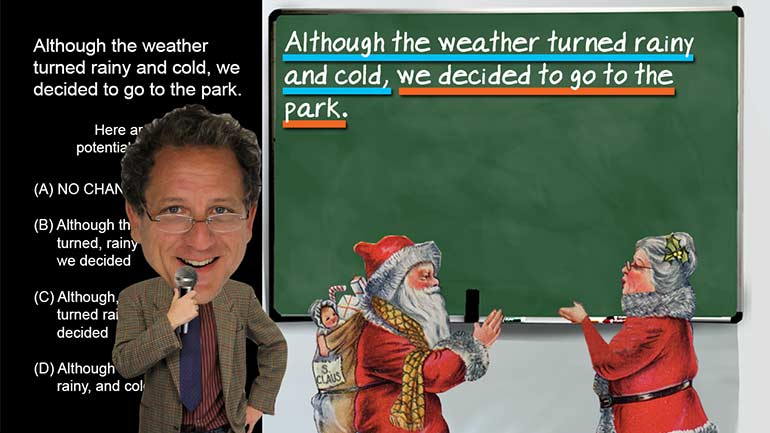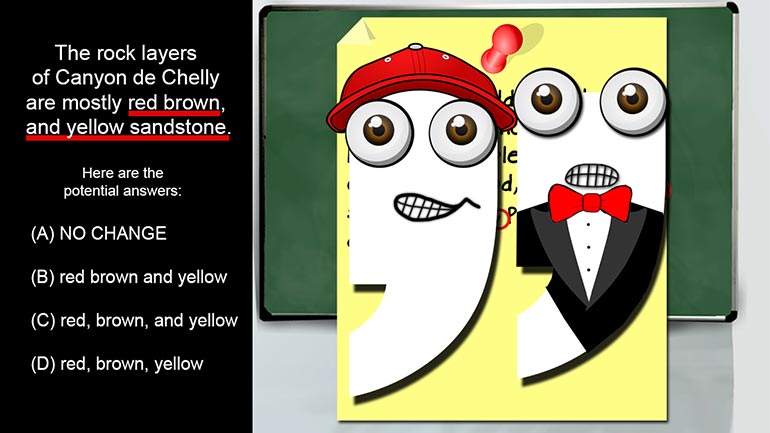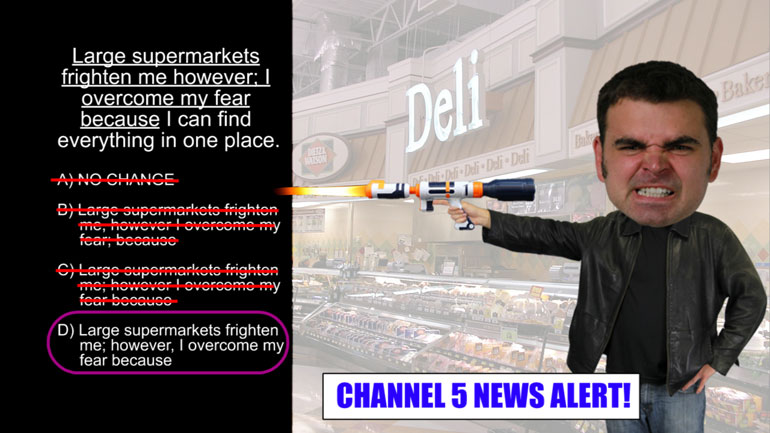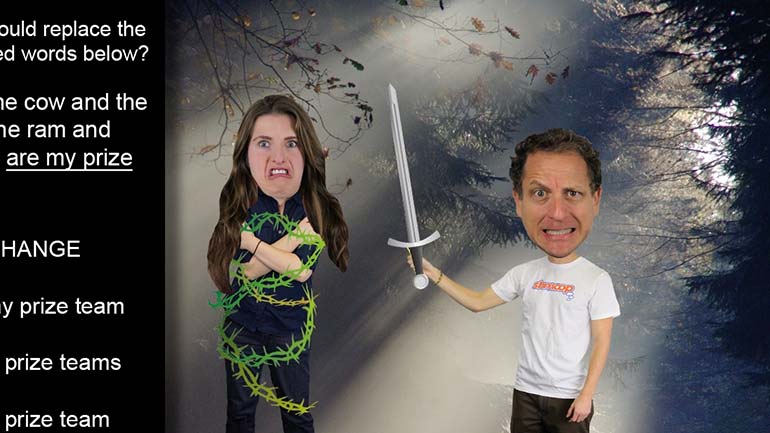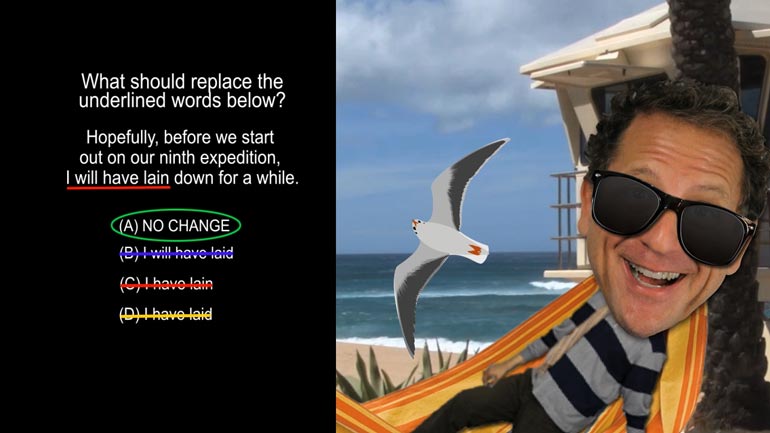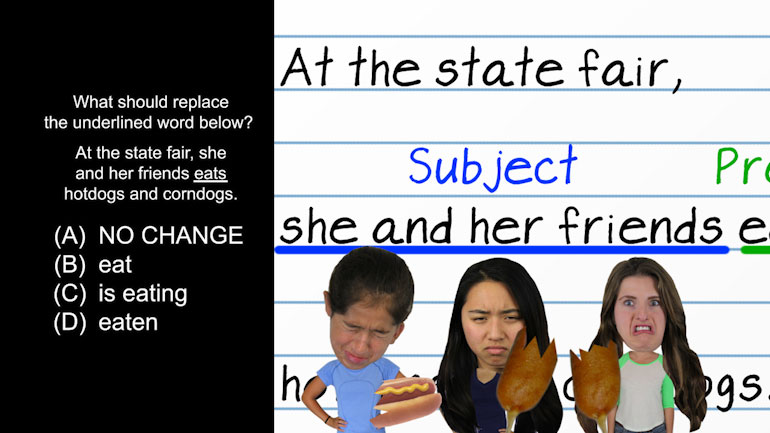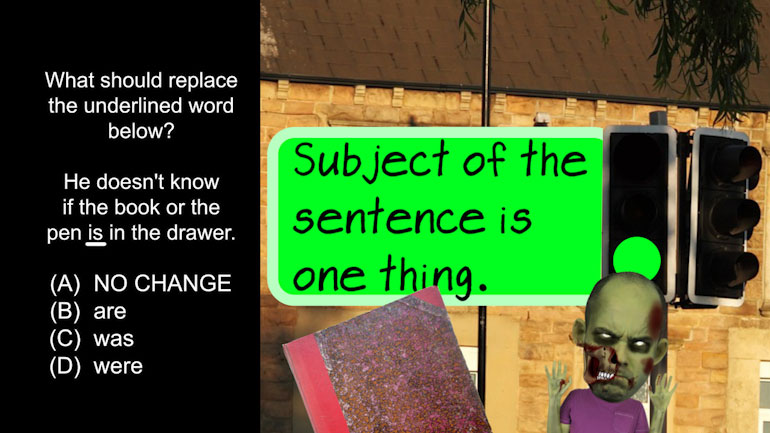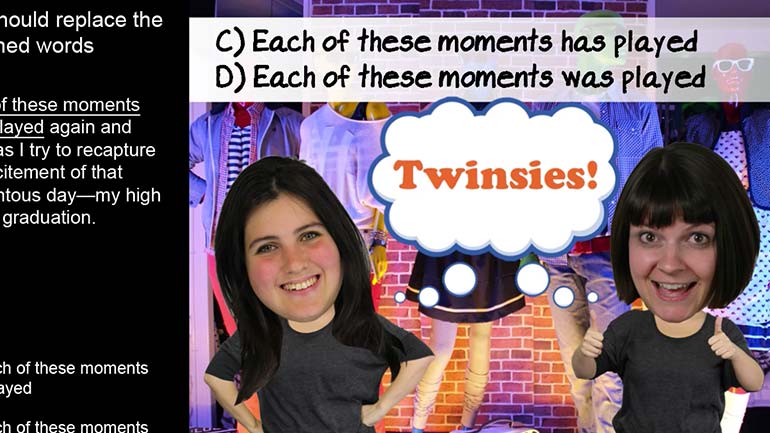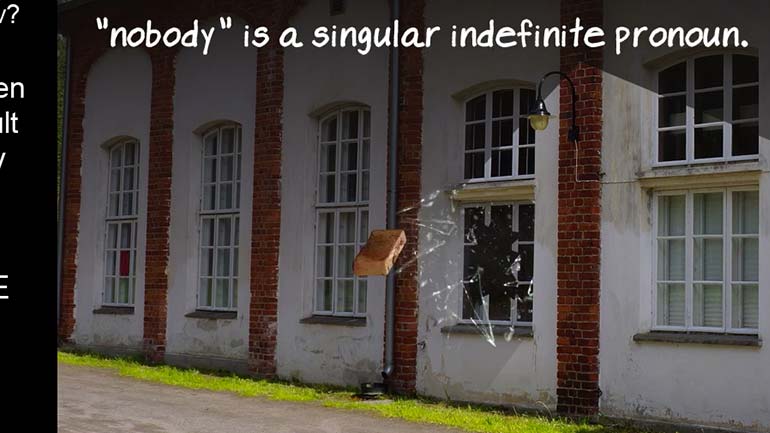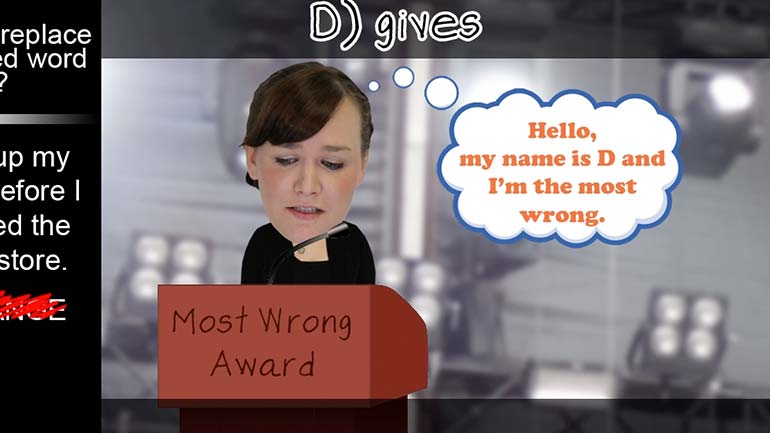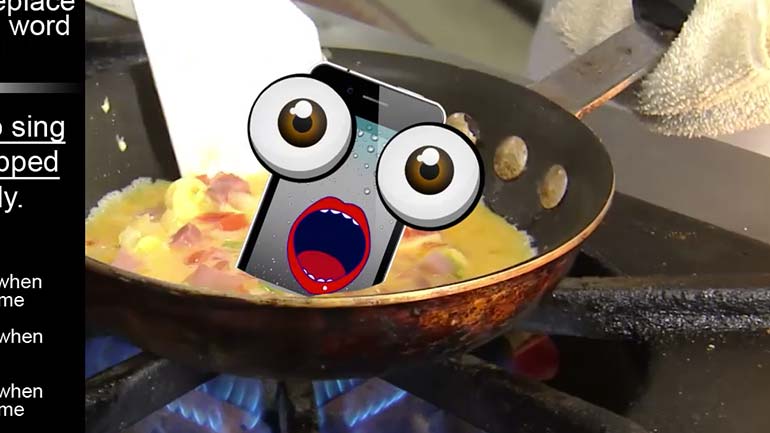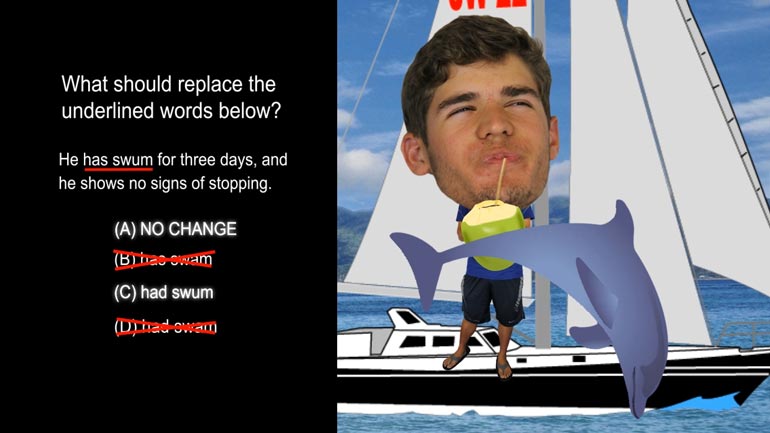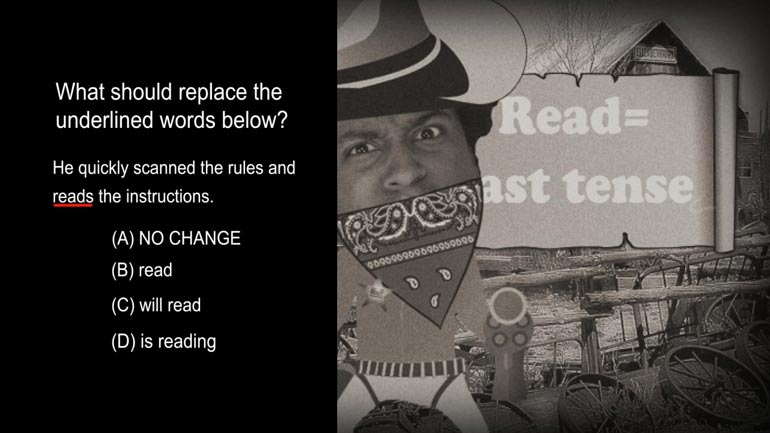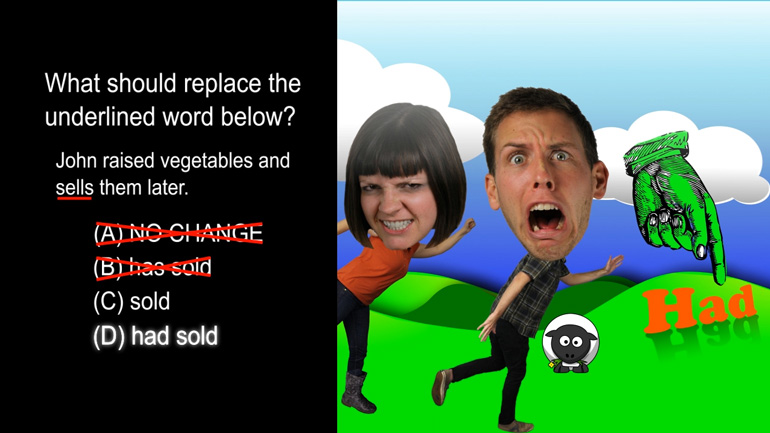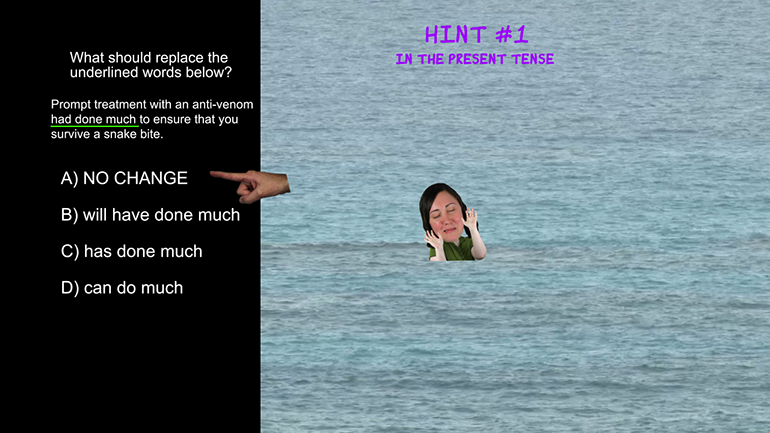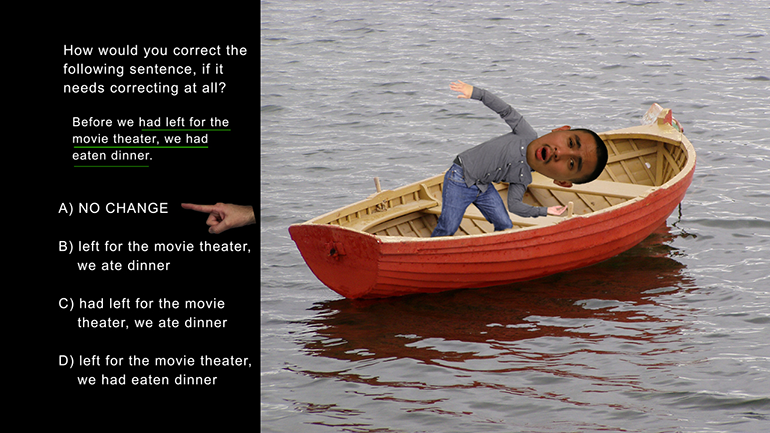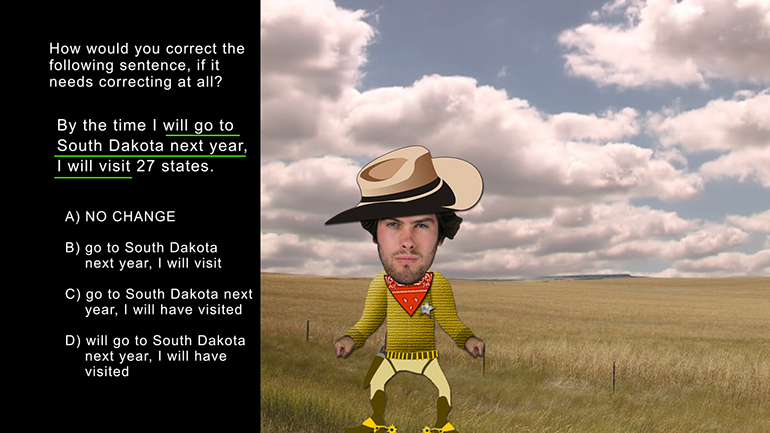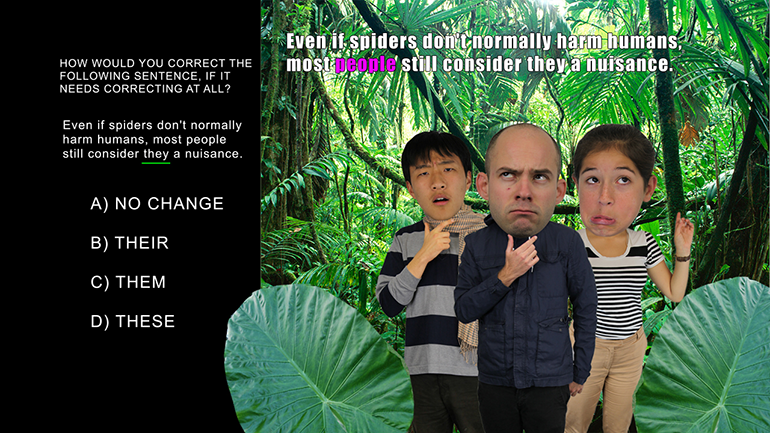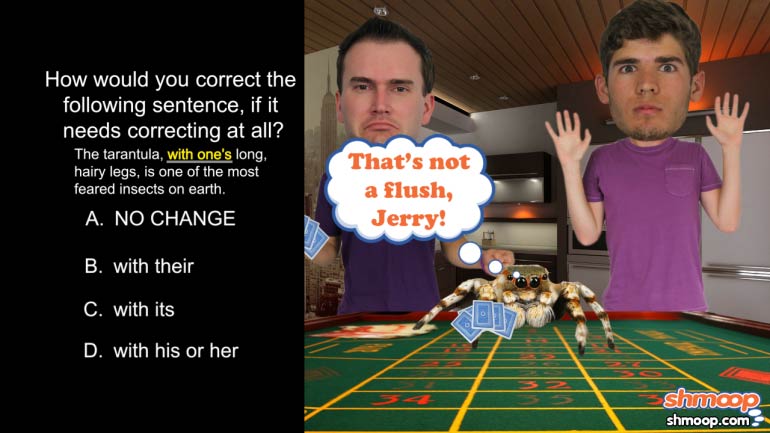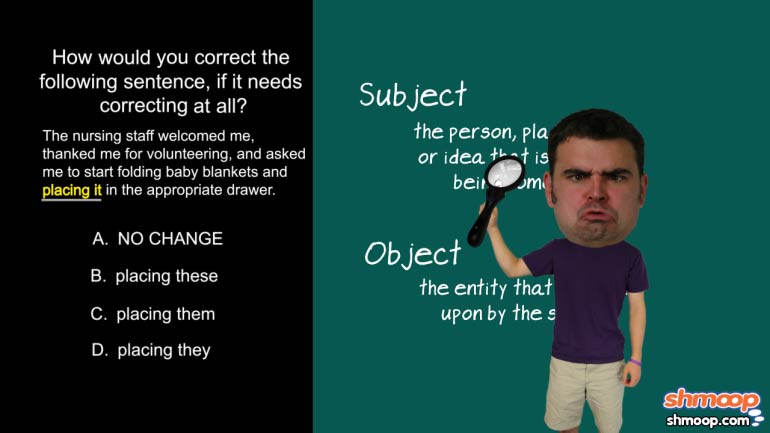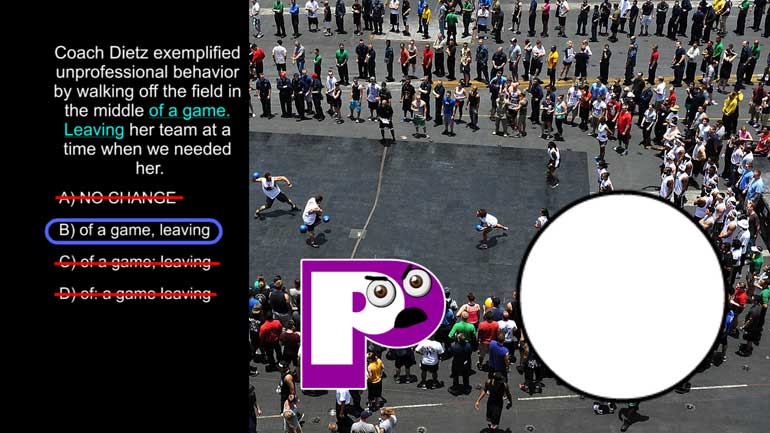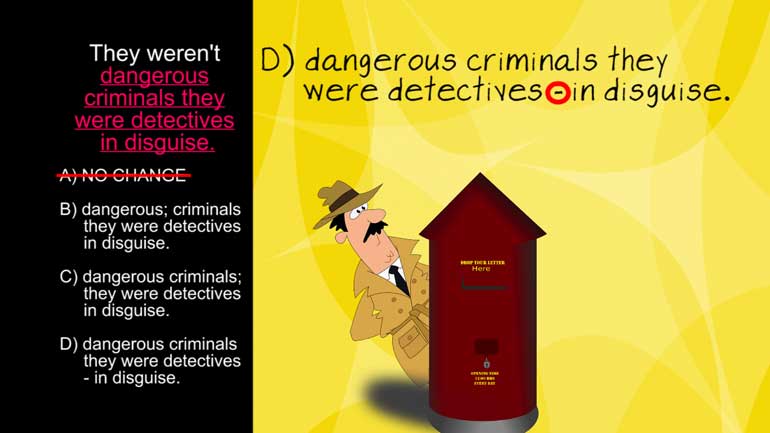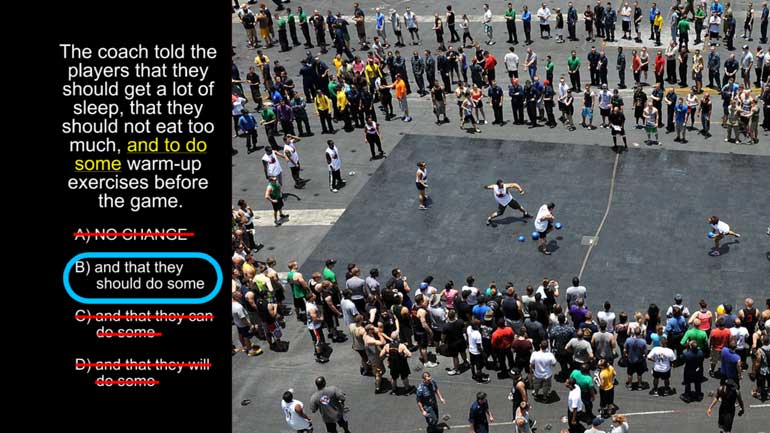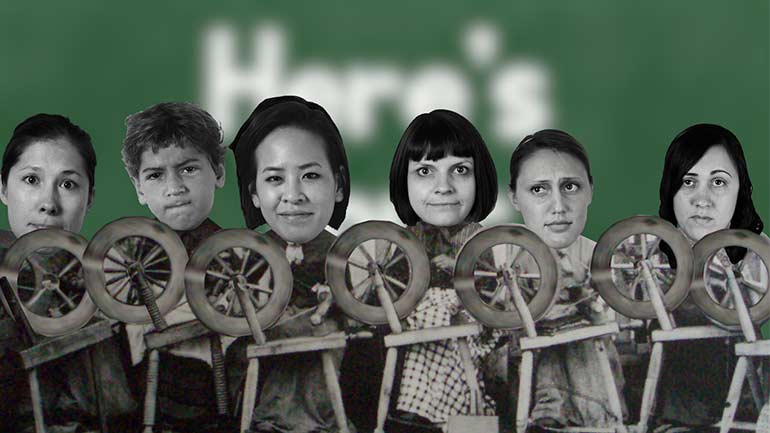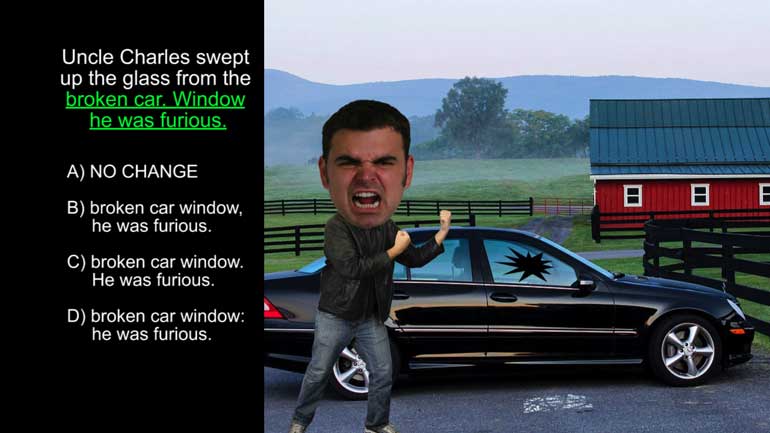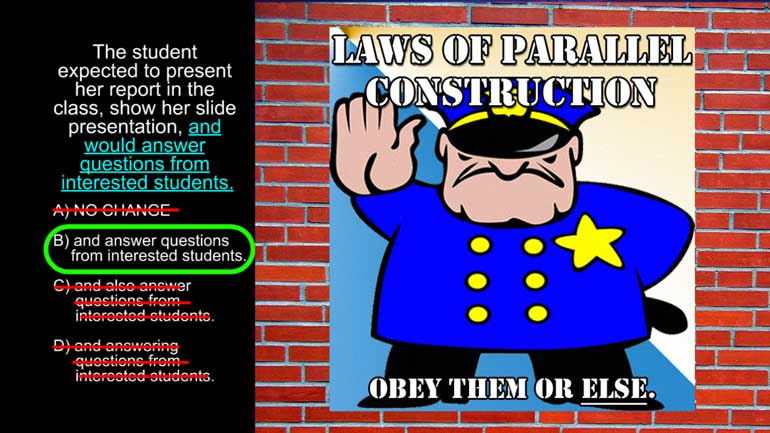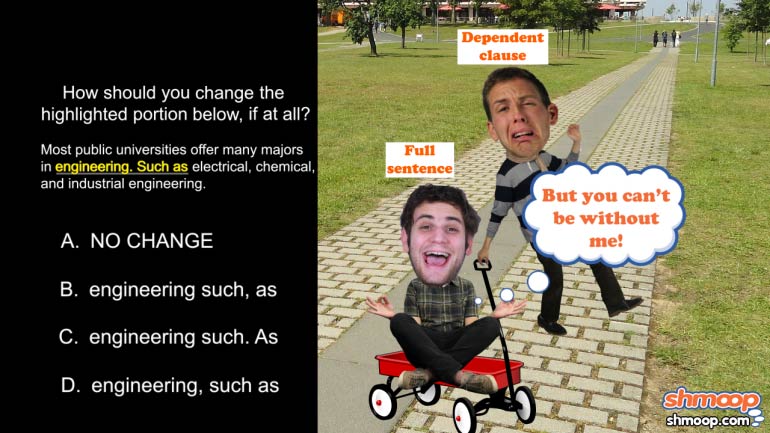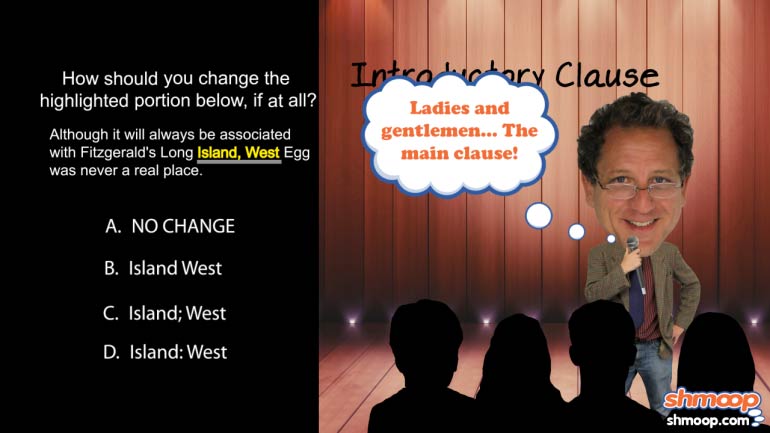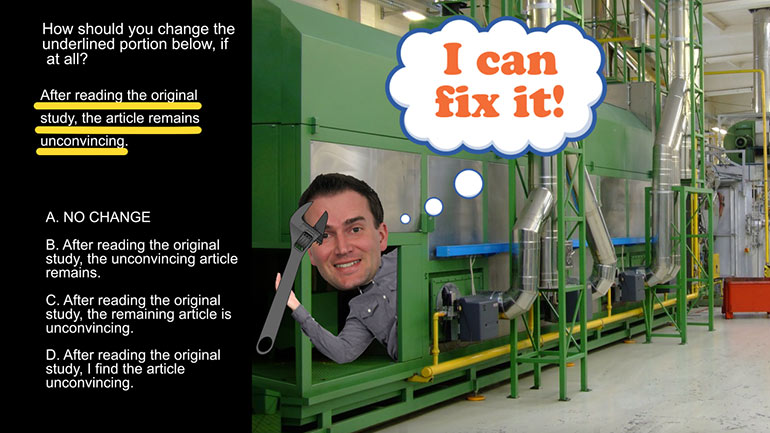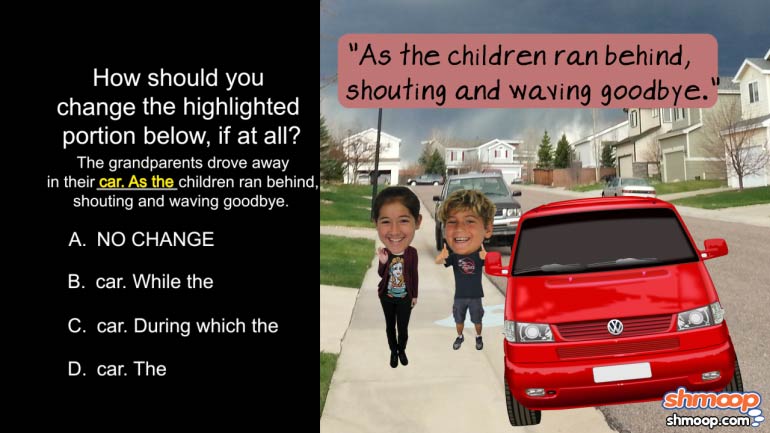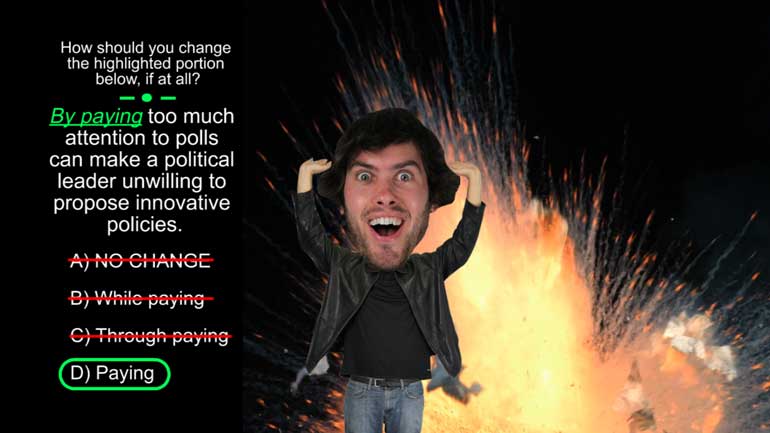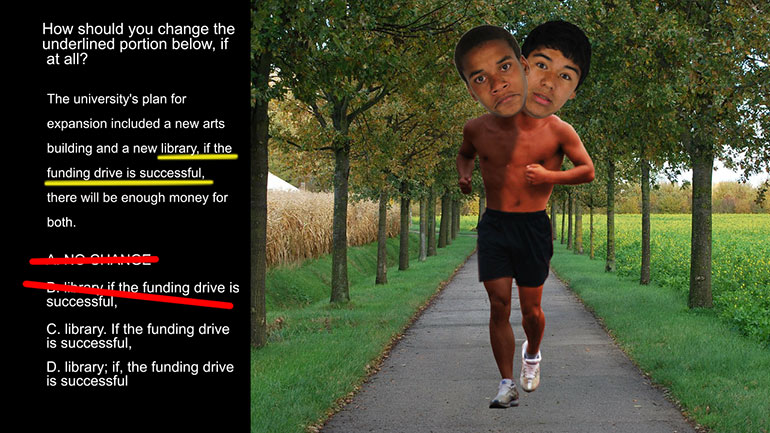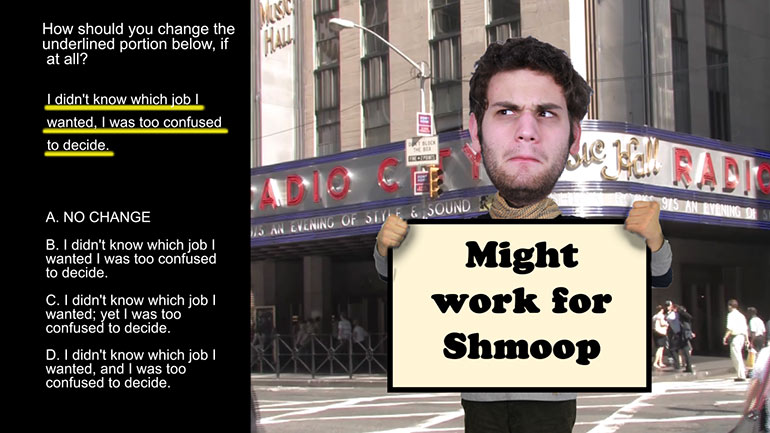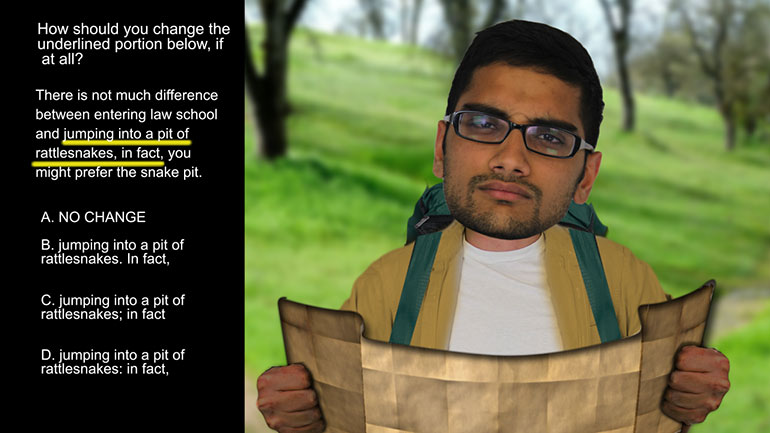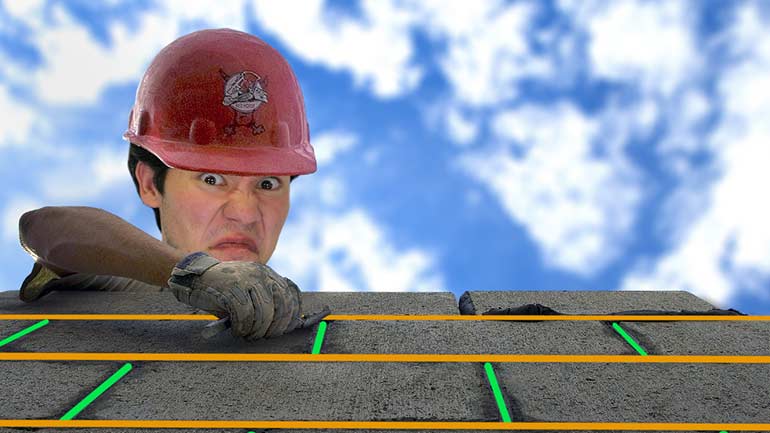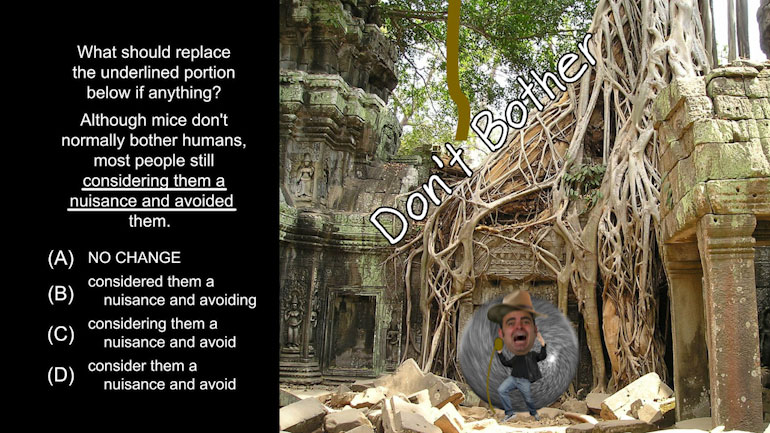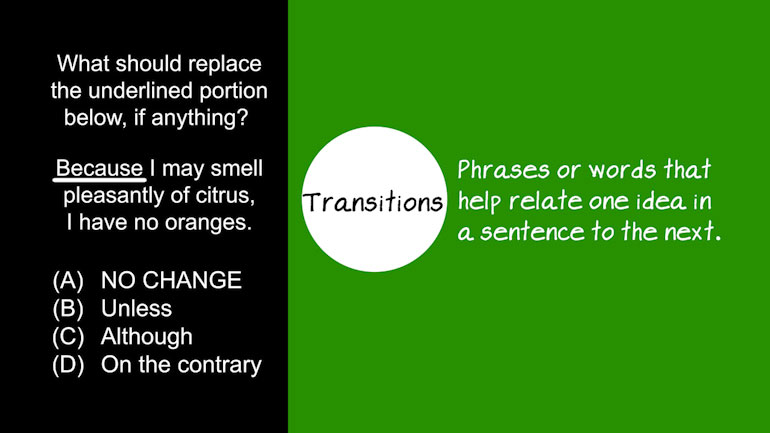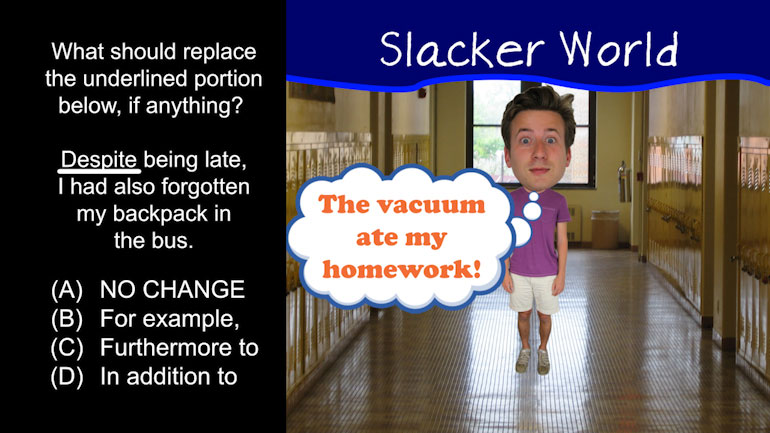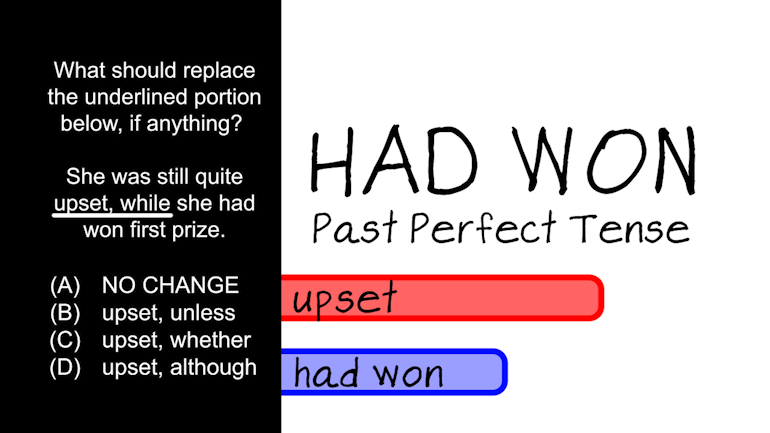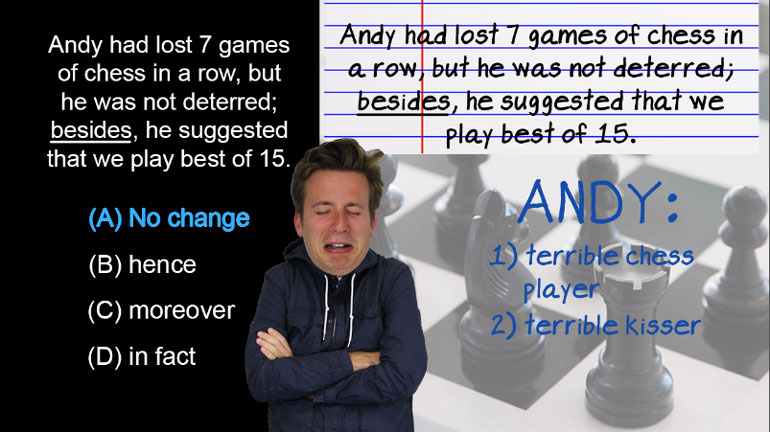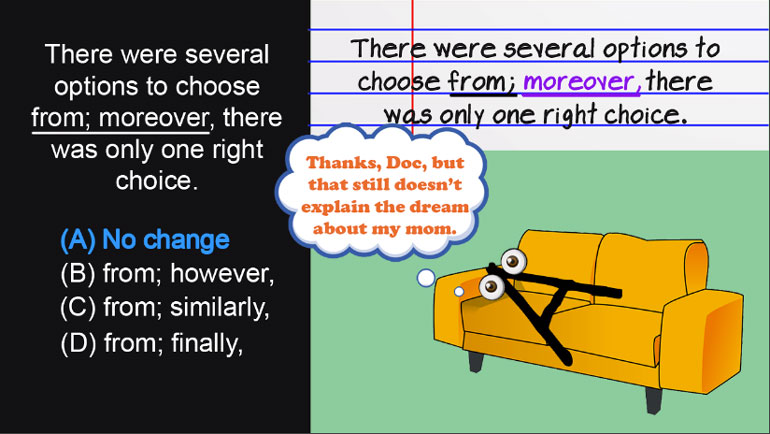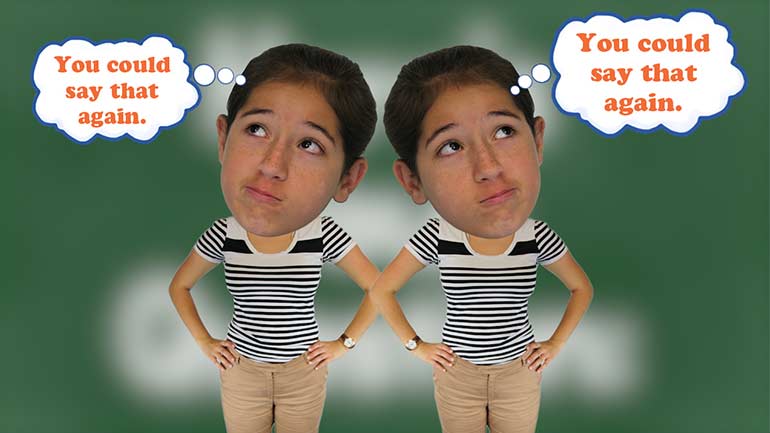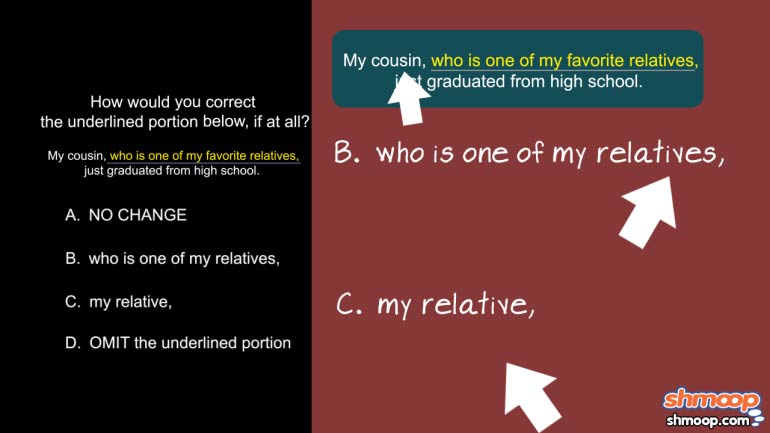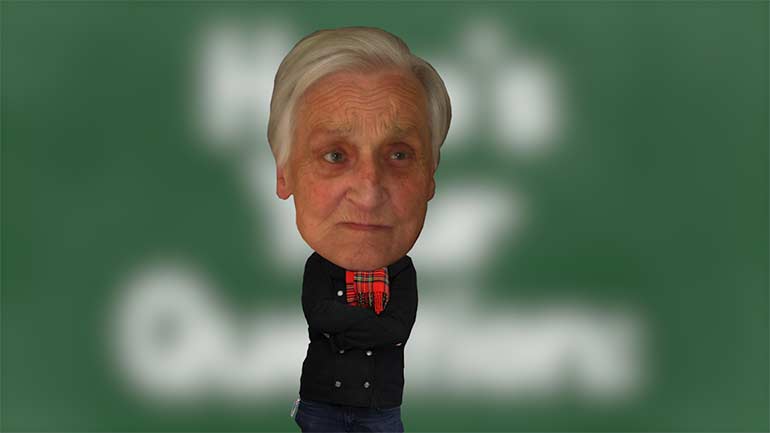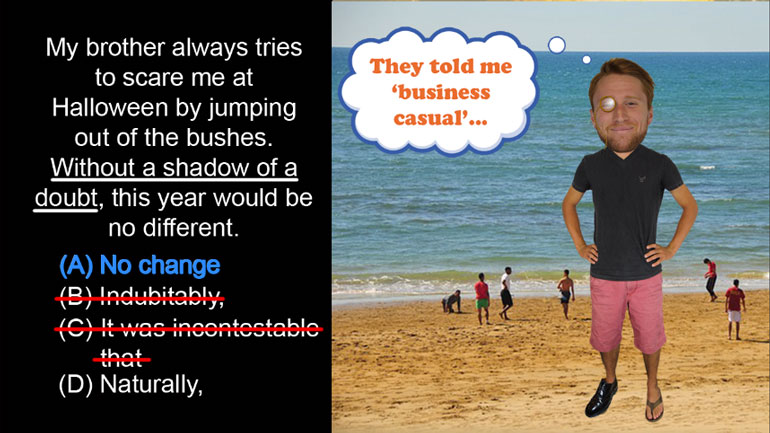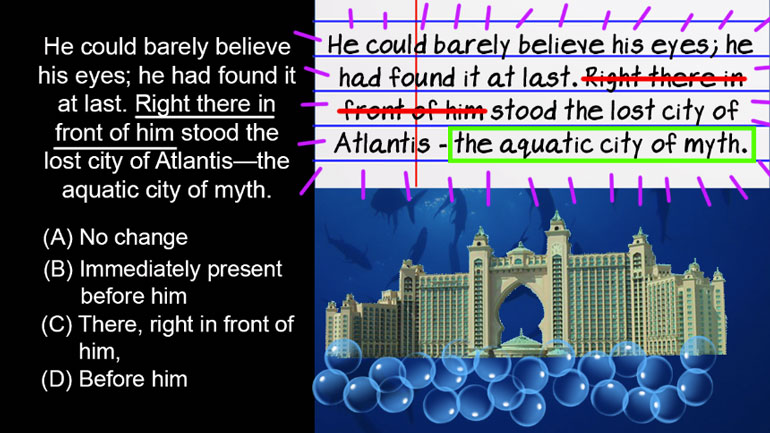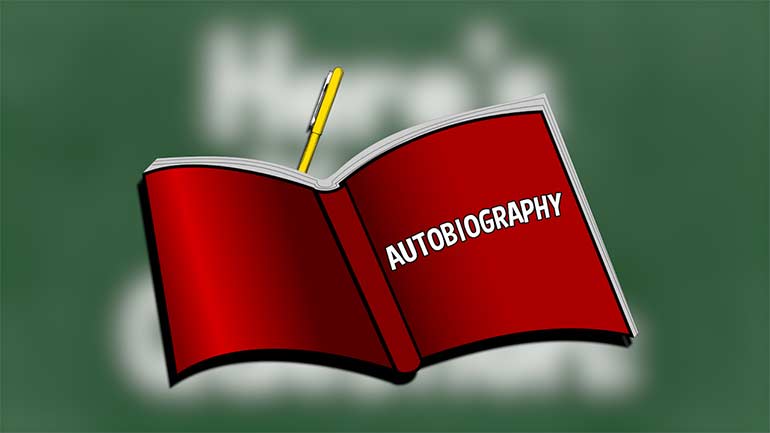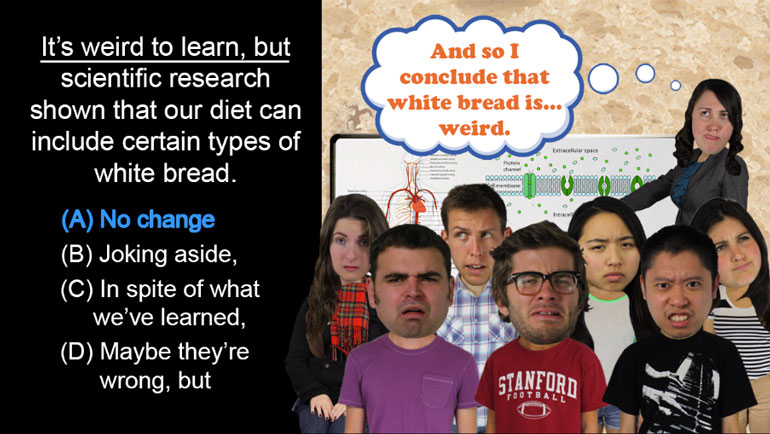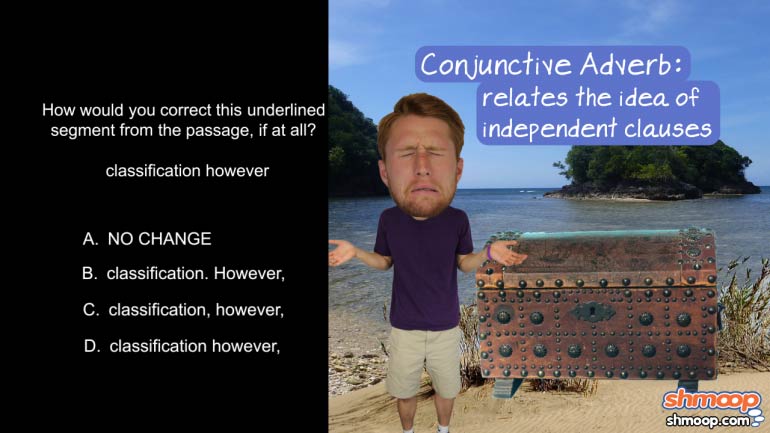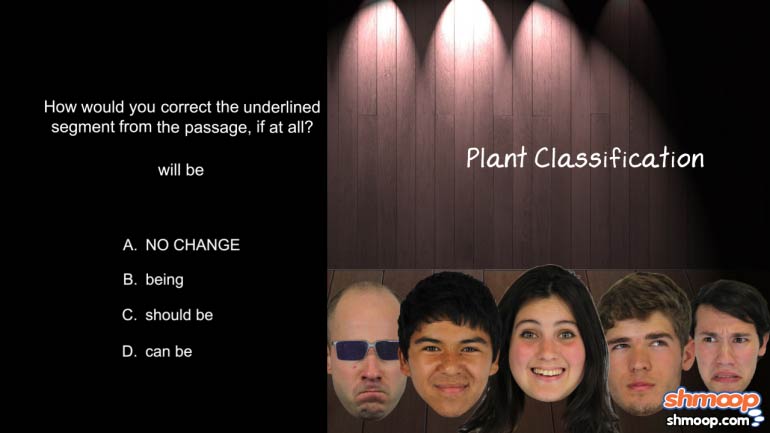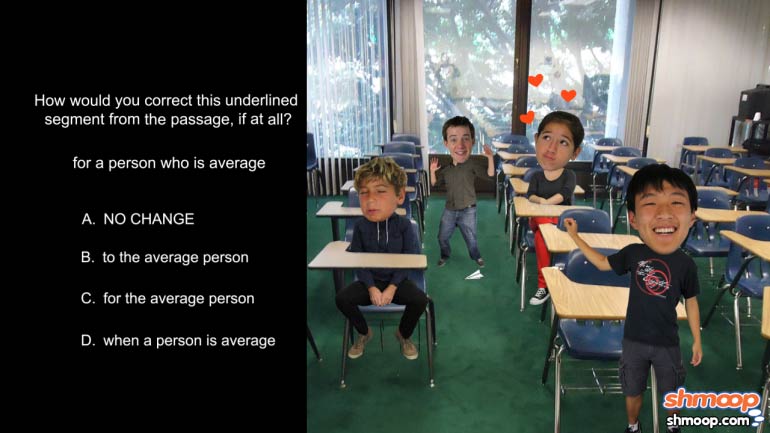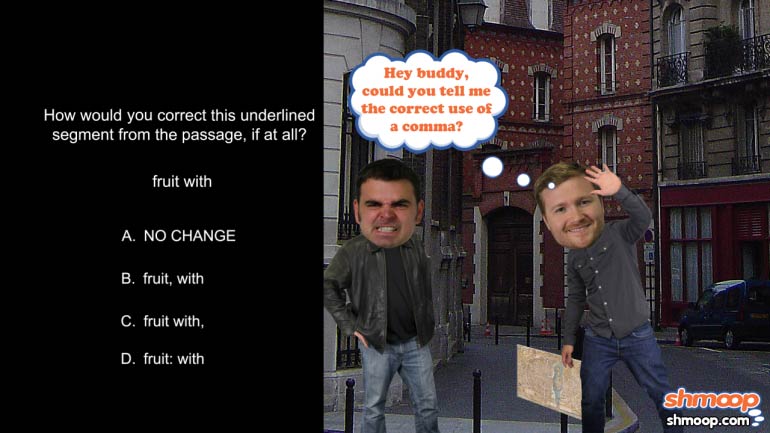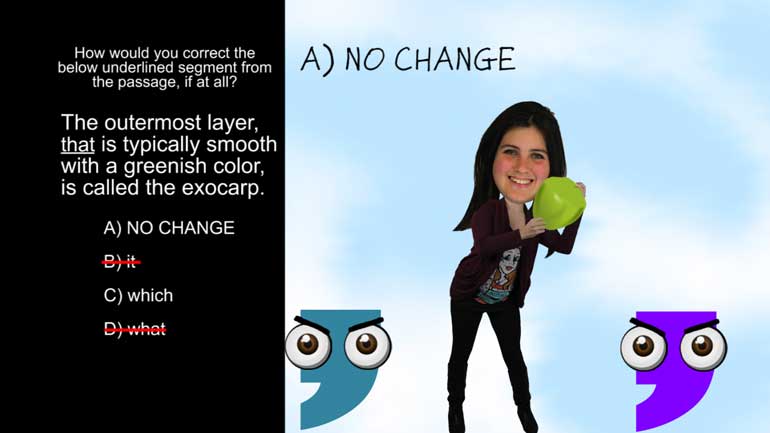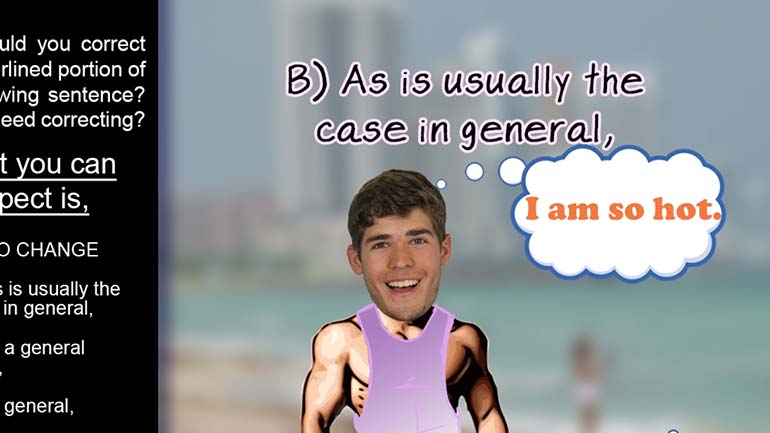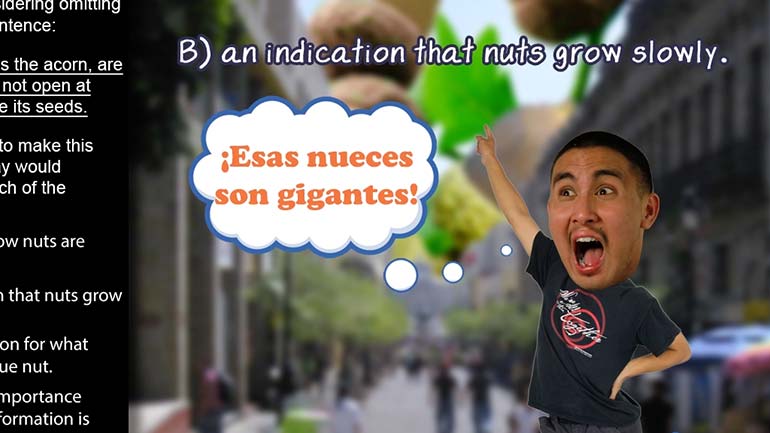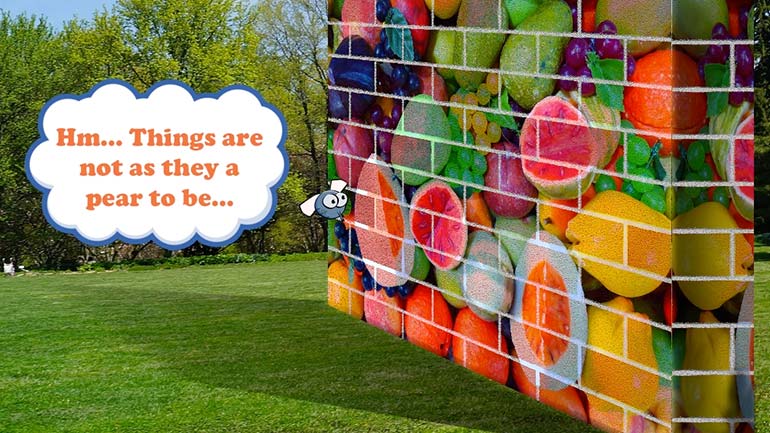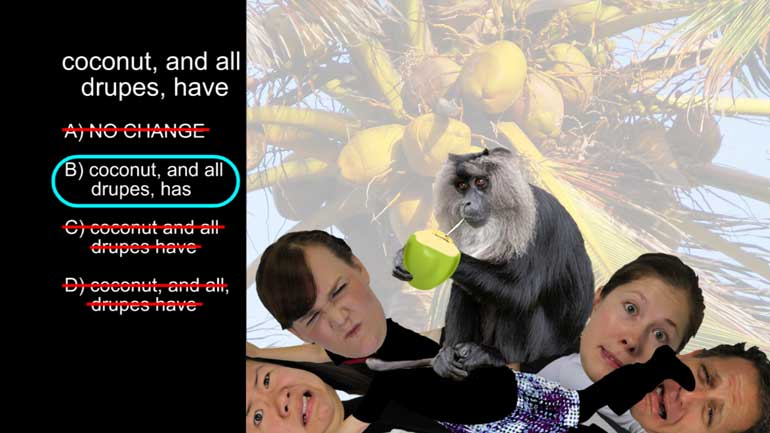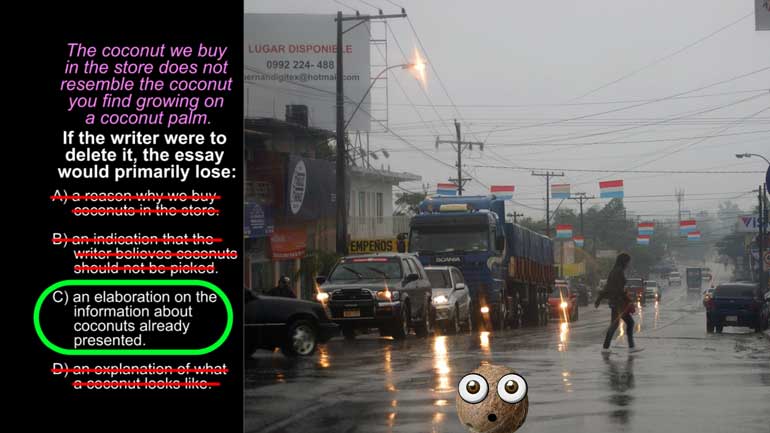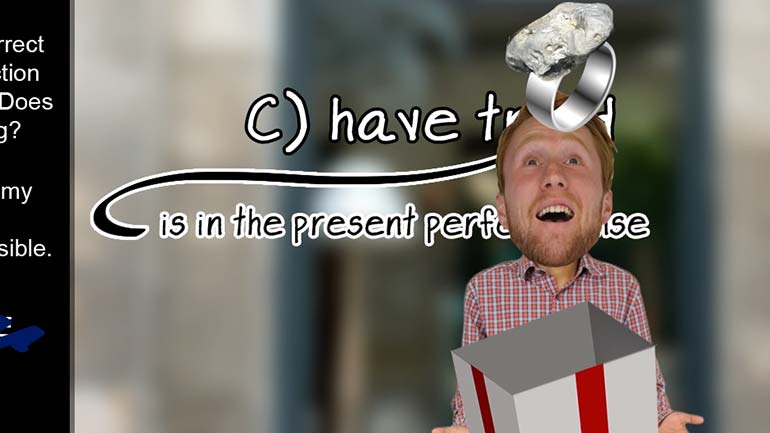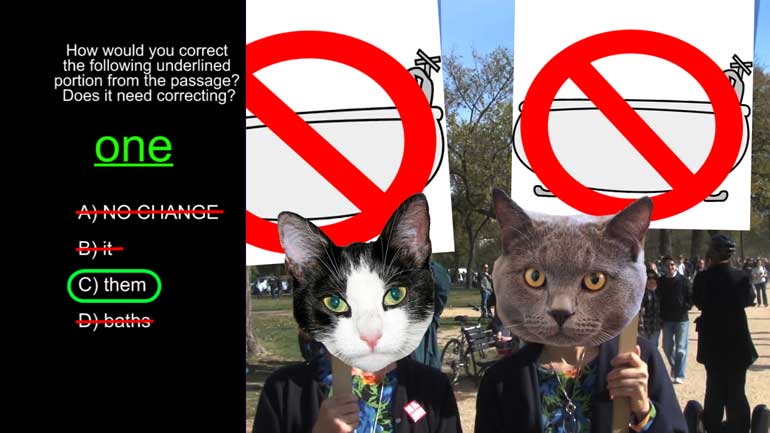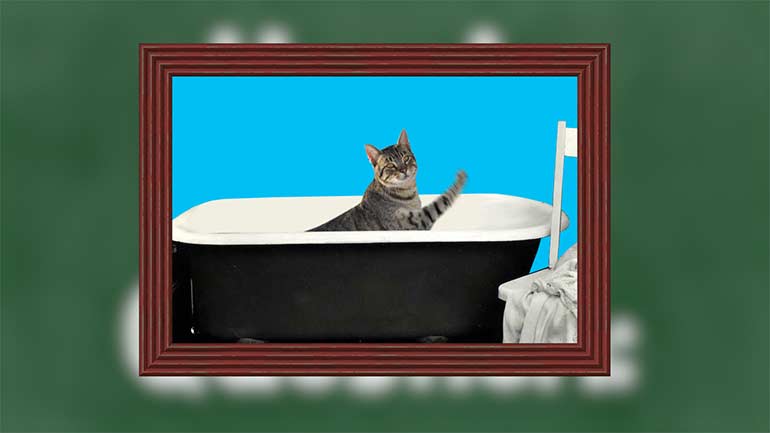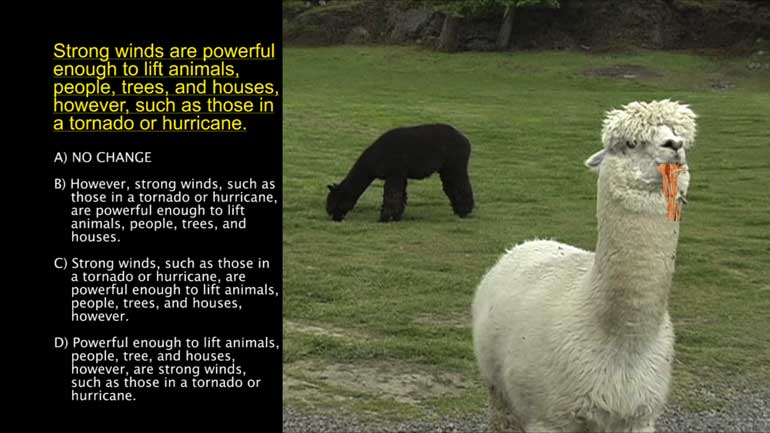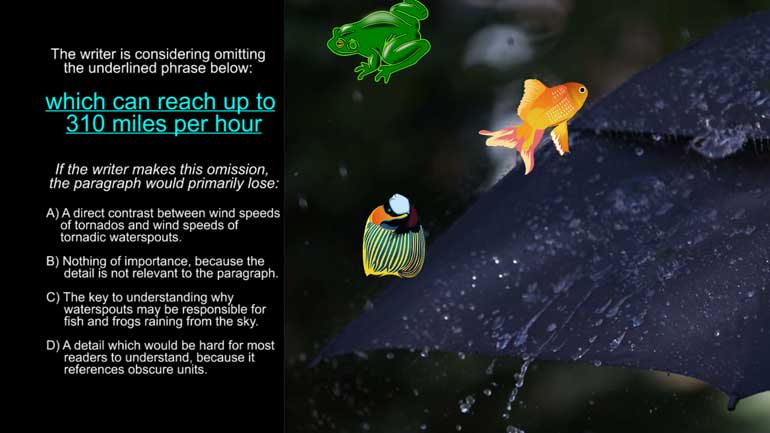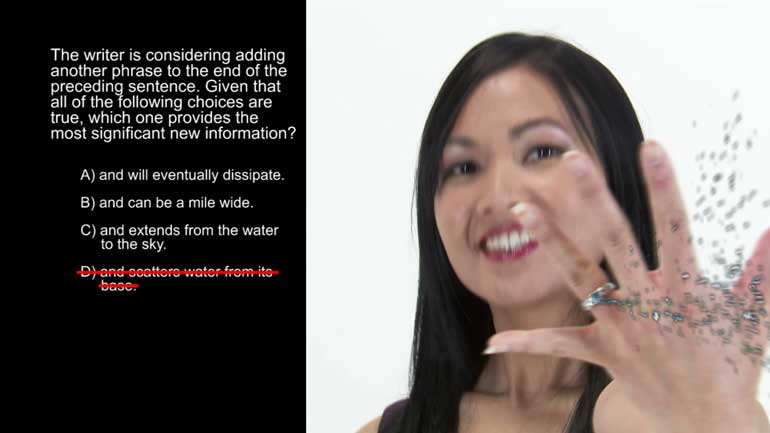ShmoopTube
Where Monty Python meets your 10th grade teacher.
Search Thousands of Shmoop Videos
ACT English Videos 162 videos
ACT English: Punctuation Drill 2, Problem 3. Where does the semicolon fit best?
ACT English: Punctuation Drill 3, Problem 4. Which choice best formats this list of items?
ACT English: Punctuation Drill 2, Problem 2. Where should the semi-colon be placed?
ACT English 5.1 Sentence Structure 224 Views
Share It!
Description:
ACT English: Sentence Structure Drill 5, Problem 1. Which choice uses the correct tense?
Transcript
- 00:03
Here’s your Shmoop du jour, brought to you by verb tenses.
- 00:07
Maybe they just need a Swedish massage.
- 00:11
How should you change the underlined portion below, if at all?
- 00:14
I woke up at 10:30 to find that my alarm has failed to go off.?
- 00:20
Here are the potential answers...
Full Transcript
- 00:25
This speaker is a hot mess.
- 00:27
Not only is she using the oldest excuse in the book for being late, she is also mixing verb tenses.
- 00:32
The sentence starts out with the verb “woke,” which is in the simple past tense.
- 00:37
This means that the other verbs in the sentence need to indicate that things happened in the past as well.
- 00:42
However, “has failed” uses the auxiliary verb “has,” which places “has failed”
- 00:49
in the present perfect tense.
- 00:51
This is a little confusing because verbs in the present perfect tense do designate action
- 00:55
that began in the past.
- 00:56
But...and this is a big but...the action (or the effect of it) has to continue into the present.
- 01:03
It’s called present perfect tense, so it has to have something to do with “now,” right?
- 01:07
Since this slacker’s alarm isn’t currently going off, “has failed” is incorrect,
- 01:12
and we can cross off choice (A).
- 01:14
Choice (C) is even further off the mark than the original sentence. “Is failing” is
- 01:17
in what’s called the “present progressive tense.”
- 01:20
This is when a verb indicates action that’s happening right now and that may continue into the future.
- 01:25
An example might be, “Because he overslept, he is running like crazy to get to work on time.”
- 01:29
The present progressive tense is, of course, wrong in this sentence, however, because the
- 01:33
past tense verb “woke” insists that the rest of the action in the sentence has to do with past.
- 01:38
We’ve got another clunker on our hands with choice (D). “Having failed” is what’s
- 01:42
known as a present perfect participle, and it isn’t called for in this sentence.
- 01:47
A present perfect participle is used to describe an action that came before something that’s
- 01:51
going on in the present.
- 01:52
Here’s an example: “Having run all the way to work, he’s now dripping sweat.”
- 01:56
Here, the present perfect participle does its job by clearly indicating that the marathon
- 02:00
run to work caused the profuse sweating that this guy’s co-workers are now blessed to witness.
- 02:06
In our original sentence, “woke” is in the past tense, so it and the present perfect
- 02:11
participle “having failed” don’t get along.
- 02:14
At long last, we’ve found the right answer with choice (B). “Had failed” is in the
- 02:18
past perfect tense, which is used to describe an action that occurred before another event
- 02:23
in the past.
- 02:24
So our speaker woke up in the past…to find that the alarm had failed to go off when it
- 02:28
was supposed to earlier in the morning. Makes sense right?
- 02:32
Next time our speaker should come up with a more creative excuse for being late.
- 02:35
What, there couldn’t have been a unicorn stampede?
Related Videos
ACT English: Punctuation Drill 2, Problem 2. Where should the semi-colon be placed?
ACT English: Punctuation Drill 3, Problem 1. How should this sentence be changed so that it is grammatically correct?
ACT English: Punctuation Drill 3, Problem 2. How should we properly hyphenate the words in this sentence?
ACT English: Punctuation Drill 3, Problem 4. Which choice best formats this list of items?
ACT English: Punctuation Drill 2, Problem 1. Which choice of punctuation best completes the sentence?
